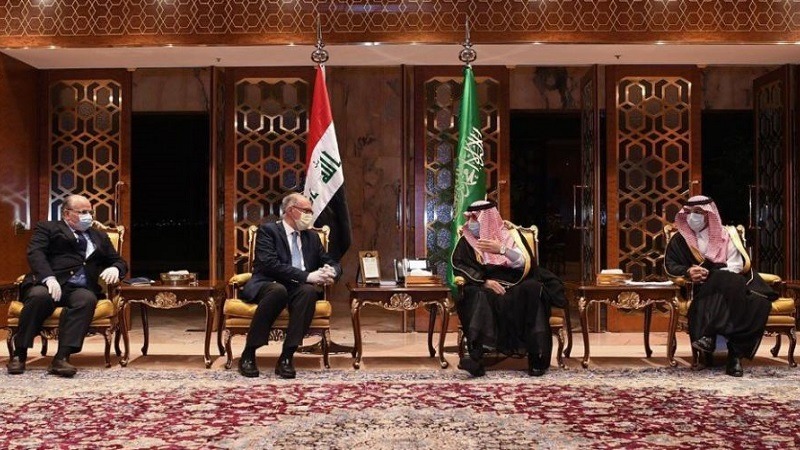Referring to the recent visit by Iraqi Prime Minister Mostafa al-Kazemi to Saudi Arabia, Aliakbar Asadi told the Strategic Council on Foreign Relations that Saudi Arabia supported Iraq in its war imposed on Iran in the 1980s; however, immediately after the war, relations between Iraq and Saudi Arabia deteriorated after Saddam Hussein invaded Kuwait and the two countries severed diplomatic relations.
“In fact, the Saddam regime was exposed as a threat to all the Arab countries of the Persian Gulf. Since 2003, the Saudis have been cooperating with the Americans especially in their invasion of Iraq; however, they were not that much consent with the next developments after the invasion and believed that Iran is having more influence in Iraq than Saudi Arabia in the new structure of power formed after the US attack. And the interests of Arab countries, Saudis believe, have not been secured. Therefore, Saudis have adopted a negative approach to the developments and incidents occurred in Iraq after Saddam was deposed of power. Therefore, Saudis were not prepared to cooperate with Iraq.”
According to Asadi, sometimes Saudi Arabia was reported to be playing a negative role in Iraq by supporting terrorist groups.
Asadi referred to the developments of the past four or five years, saying “it seems that the approaches of Saudis to Iraq has been transformed in the past years as Saudis have reached the conclusion that the present structure of power would continue in the future and if Saudis fail to use the opportunity in Iraq, Iran would play a stronger role and stabilize itself in that country”.
Asadi said on such a basis, Saudis have changed their approach to Iraq and reconstructed their diplomatic relations with Baghdad and are trying to pursue a new approach.
He added that the recent visit by Iraq’s prime minister to Saudi Arabia was conducted upon the invitation of Riyadh.
Asked about the motivation of Saudis to expand relations with Iraq, he said Saudi Arabia is seeking to extend its likes and ties with Iraq so as to help reduce Iraq’s dependence on Iraq and then attract Baghdad as a new ally for itself. This is a long term objective pursued by Riyadh which has to go through a winding and prolonged road to realize.
Asked about the approach of Baghdad to relations with Saudi Arabia, he said Iraqis have been seeking right from the beginning to maintain a normal status in the Arab world and expand their relations with the Arab countries.
He said such tendencies have increased during the tenure of Prime Minsiter Kazemi as he has tried to promote bilateral relations with Jordan and Egypt as well as Saudi Arabia.
“The Iraqi prime minister may be trying to create a balance in Iraq’s foreign policy and promote the regional position of his country. In the meantime, as relations with Saudi Arabia could result in Saudi’s investment in Iraq, improvement of relations with Riyadh could bring economic opportunities for Iraq.
Of course, the Iraqi government cannot ignore the hidden objectives and influence of Saudi Arabia in Iraq.”
Asadi added that there are various political groups in Iraq some of whom are holding negative distrustful views towards Saudi Arabia. In fact, Iraqis have not yet reached consensus as to how they can count on Saudi cooperation and supports.
“Therefore relations between Saudi Arabia and Iraq could create a sort of balance at the regional level in Iraq’s relations with other players however this cannot cause a strategic and fundamental change. In other words, one cannot envisage strategic cooperation between Iraq and Saudi Arabia. Iraqis are trying to establish normal relations with Saudi Arabia while maintaining their friendly and balanced relations with Iran. Iraqis are more interested in preventing the probable destructive measures of Saudi Arabia in Iraq and also benefit from Saudi’s financial resources and investment opportunities”.










0 Comments